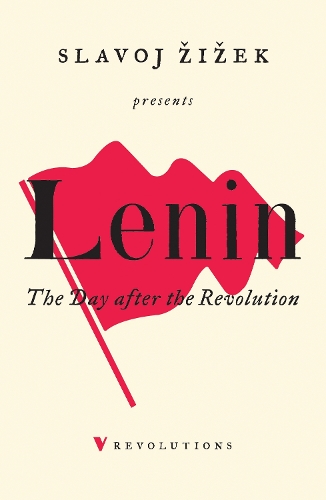
The Day After the Revolution
(Paperback)
Publishing Details
The Day After the Revolution
By (Author) Slavoj Zizek
By (author) V I Lenin
Verso Books
Verso Books
7th January 2019
United Kingdom
Classifications
General
Non Fiction
European history
History and Archaeology
Political leaders and leadership
335.43
Physical Properties
Paperback
272
Width 140mm, Height 210mm, Spine 18mm
296g
Description
Lenins originality and importance as a revolutionary leader is most often associated with the seizure of power in 1917. But, iek argues in his new study and collection of original texts, Lenins true greatness can be better grasped in the very last couple of years of his political life. Russia had survived foreign invasion, embargo and a terrifying civil war, as well as internal revolts such as at Kronstadt in 1921. But the new state was exhausted, isolated and disorientated in the face of the world revolution that seemed to be receding. New paths had to be sought, almost from scratch, for the Soviet state to survive and imagine some alternative route to the future. With his characteristic brio and provocative insight, iek suggests that Lenins courage as a thinker can be found in his willingness to face this reality of retreat lucidly and frontally.
Reviews
Science & Society -- Alan Shandro
Author Bio
Slavoj iek is a Slovenian philosopher and cultural critic. He is a professor at the European Graduate School, International Director of the Birkbeck Institute for the Humanities, Birkbeck College, University of London, and a senior researcher at the Institute of Sociology, University of Ljubljana, Slovenia. His books include Living in the End Times, First as Tragedy, Then as Farce, In Defense of Lost Causes, four volumes of the Essential iek, and many more.
